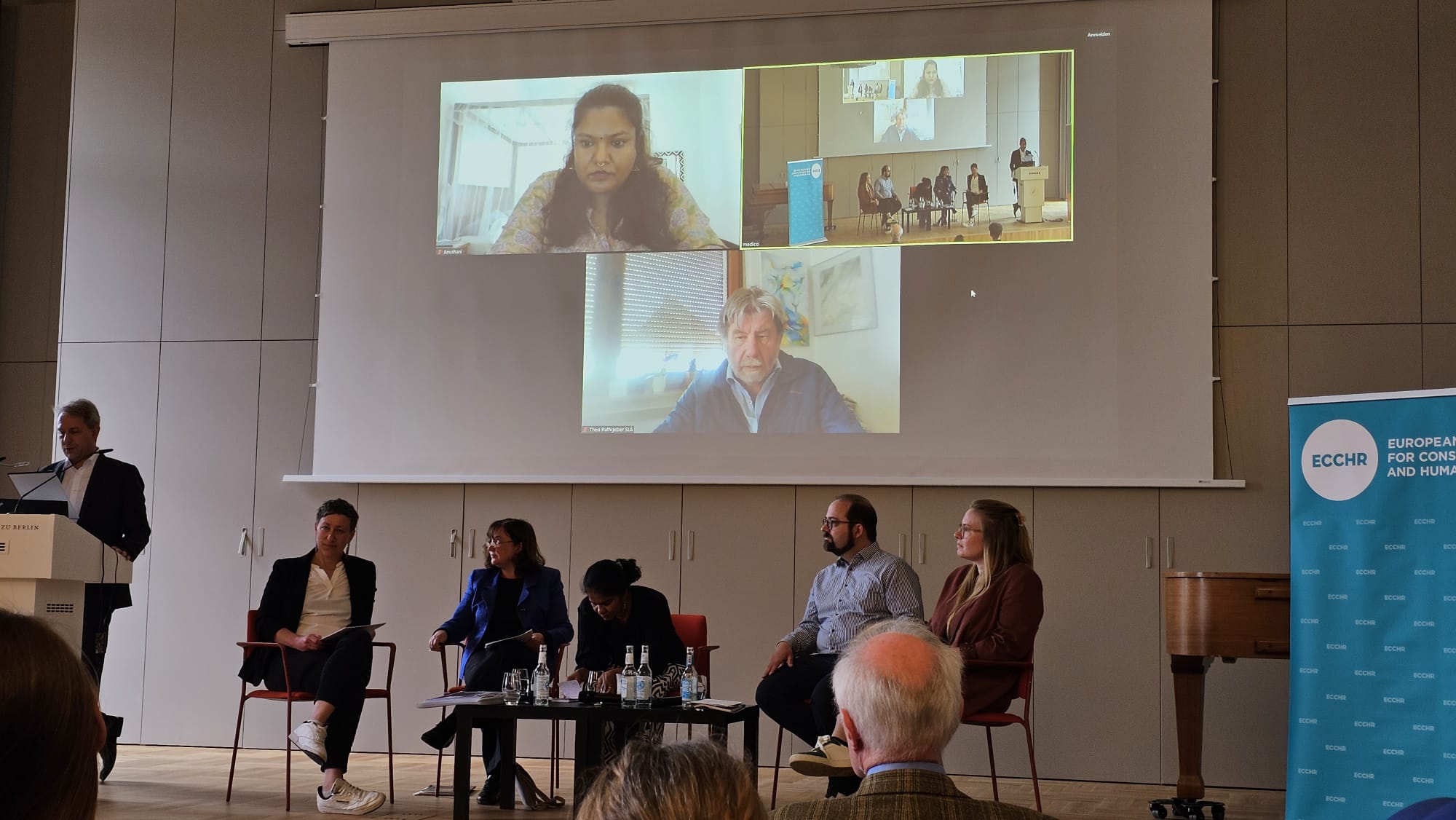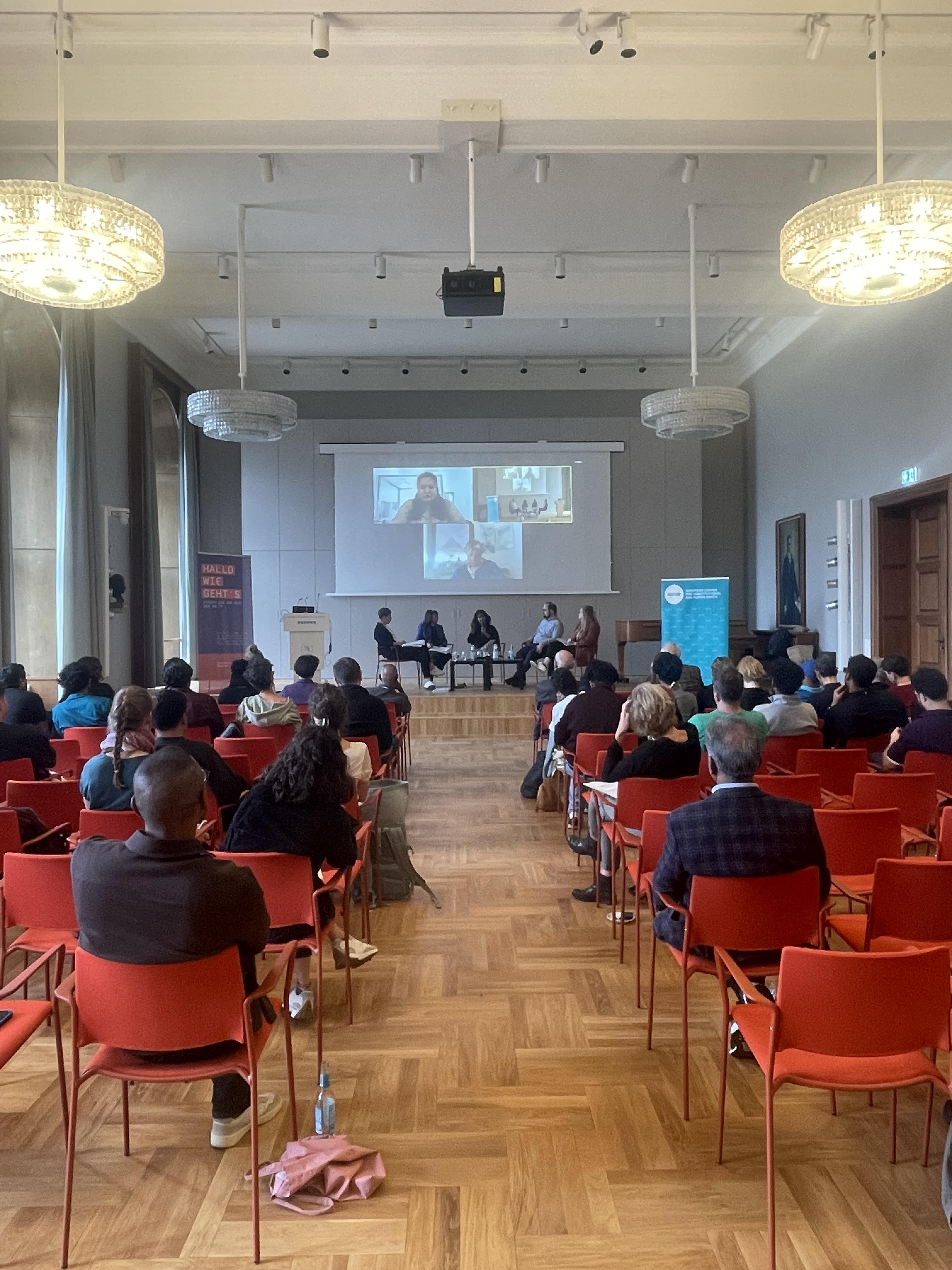
An event was held in Berlin last month to mark the launch of the latest UN report in Sri Lanka, highlighting the lack of justice and accountability for mass atrocities committed more than 15 years ago.
The event, which was titled ’15 years of Official Peace’, was held in Berlin at the Senate Hall of Humboldt University and was co-hosted by Medico International, ECCHR, and Sri Lanka Advocacy.
During the event, Annemarie Devereux, head of the UN Sri Lanka Accountability Project (SLAP) at the Office of the High Commissioner for Human Rights (OHCHR), presented the investigative report that systematically collected and analyzed testimonies of abuse, torture, rape, disappearances, and killings. The report was commissioned by the UN Human Rights Council in 2021 and found that the risk of future enforced disappearances remains today as Sri Lanka has failed to “tackle structural weaknesses and to undertake necessary reform.”
Read more here: OHCHR says ‘failures to tackle structural weaknesses’ in Sri Lanka risks future enforced disappearances
Anushani Alagarajah, a human rights defender and the Executive Director at the Adayaalam Centre for Policy Research, highlighted how victims and families of enforced disappearences were feeling fatigue from having shared an account of their stories with numerous committees and commission with no end in sight. She added that they’ve had to answer the same questions over and over again which has been a frustrating experience.
The root causes are structural, she added.
Meanwhile, Shreen Saroor, a human rights activist from Sri Lanka, said a truth commission only makes sense ‘if it is a puzzle in a broader process of accountability, political and institutional change, and reconciliation.’
But without this process “it is just a label,” she added. She went on to describe how democracy in Sri Lanka had failed as demonstrated by how perpetrators of human rights abuses are able to get into power and become part of democratic structures and mandates.
Andreas Schüller from ECCHR spoke on the role of the international community and lessons from cases in Syria that could be applied in Sri Lanka.

